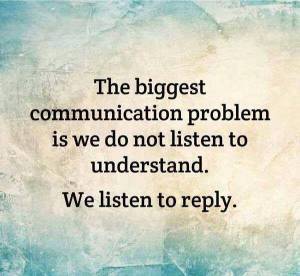Leah Ness's Blog, page 7
October 8, 2014
Enjoying God
One night, I was sitting in a young adults group listening to a sermon, and the pastor used a quote that I have never forgotten (though I can’t for the life of me remember who originally said it). The quote was: ‘Love the Lord your God with all your heart, soul, mind, and strength… and then do whatever you want.’
And I just thought to myself, That’s it. The key to life. I shall have it tattooed on my body. Here I am a few years down the road and I’m glad I didn’t. I still love the quote, but I have come to realize it is incomplete.
The Bible tells us in Luke 10:27 to love God with all our heart, soul, mind and strength. In fact, this is the greatest commandment. And if it’s a commandment, then it must be attainable with the help of the Holy Spirit.
Yet for years and years I tried and tried and tried to love God with everything I had and I failed, every single time. I begged Him to help me love Him more, to give me the love that I needed to give to Him. But I just couldn’t do it.
Then I found Eph. 3:14-19. In verse 14, Paul says ‘For this reason I bow my knees to the Father of our Lord Jesus Christ’ and when reading it, and picturing Paul in intersession on behalf of the saints, I automatically figure Paul is about to say that he has asked God to help the Ephesians not to sin, or even help them love Him more and put Him first. Here is what Paul actually says in verses 17-19:
“…that Christ may dwell in your hearts through faith; that you, being rooted and grounded in love, may be able to comprehend with all the saints what is the width and length and depth and height— to know the love of Christ which passes knowledge; that you may be filled with all the fullness of God.”
It is very difficult to love someone who doesn’t love you back. I’m going to stop short of calling it impossible because through Christ all things are possible and the Bible tells us to love our enemies, which is usually a pretty one-sided love. Even so, the only way to love perfectly, independent of anything the other person is doing for you and completely devoid of selfish agenda, is with be perfect love of Christ.
We cannot access that love unless we are in a right relationship with Christ. We cannot be in a right relationship with Christ unless we love Him. And, finally, we cannot love Him unless He gives us that love.
We can’t love Him unless we know and understand that, as Rom. 5:8 says, He loved us first. Understanding just how much God loves us and how undeserved that love is, is the first, and indispensable, step to truly loving God the way we are called to love Him.
If we just walk out the door and say, ‘I’m gonna love God today’ and don’t fully understand His love for us, it will never work. Reason being that His love for us is the truest and most pure love that has ever existed, ever could exist. God’s love for us is simply what love is. If we do not understand this love, we will not be able to love Him back because we will not know what love even is.
Almost all of us know the children’s song ‘Jesus loves me’. A lot of us were raised listening to it and I’ll bet most of us can’t even remember when the first time we heard it was. It has become a hallmark for Sunday school but it has also, sadly, become a cliché that is commonly associated with children only.
How many times, as adults, do we really sit down and think, “Wow. Jesus loves me”? How many times does this thought even make us smile anymore? I for one am guilty of plodding through life, looking at the bad, trying in all my own mighty power to love and glorify God, and I totally forget to remember the truth of God’s love for me. I’m certainly not stopping frequently during my busy day to smile because Jesus loves me.
How can I hope to give God something that I cannot accept from Him? How can I even hope to know what that something is if I’m not getting it from God and letting Him show it to me?
So I love the quote I heard all those years ago, but I have learned to pair it together with Eph. 3:17-19. Because when we really stop to think on God’s great love for us – love so pure and so undeserved as to be ridiculous by human terms – how can we help but love God back?
I don’t profess to love God with all I have, nor do I fully understand His love for me. But I believe I am growing in both these things and I’m enjoying life and God a lot more these days. Which makes me think of another quote I heard a while ago: ‘The chief end of man is to glorify God by enjoying Him forever.’


October 5, 2014
What Did I Come in Here For?
We’ve all asked that question before; it’s what happens when you walk into a room, pause, and can’t for the life of you remember why you’re there.
Would you believe me if I told you I want to do that more often?
I was reading about the woman from Samaria and her trip to the well. Drawing water was a daily chore for her. She’d haul a heavy water jug to the well, fill it with heavier water, then haul it back. And she did so at the uncommon time of noon, ostensibly to go unnoticed and unbothered.
Imagine her surprise and dismay to find a Jewish Man sitting at the well.
There was no love lost between the Jews and the Samaritans, and this Jew had the audacity to sit at her well and ask her for water.
Maybe the thought, “Who does this guy think He is?!” crossed her mind. “You are a Jew,” she told Him, also pointing out that He had nothing to draw water with.
All she offered Him were excuses. In exchange, He offered her living water.
We do this so often. We go about our lives and try to complete our chores and when Jesus asks us for something, we shut Him down with a list of excuses.
Though she doubted His offer of living water at first, she soon asked for some. Why? So she wouldn’t have to go draw water anymore.
Talk about missing the bigger picture. Despite the claims this Man is making, her thoughts were still focused on why she was there: to get water.
Jesus confronts this misplaced priority by convicting her of her sins and calling her out as an adulteress. But even this doesn’t get her on track.
“Our fathers worshiped on this mountain, and you Jews say that in Jerusalem is the place where one ought to worship.”
That’s her answer. Honestly, what does that have to do with the price of tea in China? But I do the same thing all the time.
When Jesus asks me to do something, and I’m busy with my chores, I give Him excuses.
When He makes me promises that seem too good to be true, I doubt His word.
And when He convicts me of my sin, I look around desperately for something to distract from them.
We see this distraction technique a lot in our couture today. When confronted with our faults and sins, we are very quick to point the finger at those who are being judgmental, intolerant, sexist, greedy, etc. But our actions are our own, and we don’t get to share the blame.
After the excuses and the doubts and dodging the bullet, I’d have given up on this woman. I so often expect God to give up on me.
And He never does.
Instead, He calls us to worship.
“But the hour is coming, and now is, when the true worshipers will worship the Father in spirit and truth; for the Father is seeking such to worship Him.”
None of that woman’s sins disqualified her from the call to worship. The opportunity to come before the King and praise Him was still hers, in spite of all her sins. Jesus was still calling her to follow Him.
And she finally did. I love verse 28a because it’s one of those tiny details that are so easily missed yet are so crucial.
“The woman then left her waterpot,”
When I meet with Jesus, I’m often burdened with what I think I need. I’ll make excuses and doubt His word and focus on what brought me to the well. Then, after an all too brief conversation, I’ll take my water jug and go.
But one conversation with Jesus changed this woman’s life. His invitation to worship had her so excited that she completely forgot what had brought her to the well in the first place.
Our conversations with Jesus should always end that way: With us leaving our burdens and needs with Him and entering into worship.
I want my conversations with the Lord to end with my priorities in order, and my focus on worshiping Him, no matter what brought me to the well in the first place.


October 1, 2014
Thoughts on Raising Kids from Someone who has no Kids
(Originally published 8/15/13)
This post is a bit different from what I usually write. I love kids and though I don’t have my own (yet), I’ve worked in childcare in some capacity or other for the last thirteen years. I recently finished reading a book on Irena Sendler and it gave me a thought I wanted to share.
For those of you who have never heard of her, she was a social worker in Warsaw during World War 2. She, together with a network of helpers, rescued 2,500 Jewish children from the Warsaw ghetto and many adults as well. She and her associates smuggled these children out in countless different and ingenious ways, at great personal risk and sacrifice to themselves.
Irena herself was arrested at one point and spent 100 days in a Nazi prison, suffering through brutal interrogations, inhuman living conditions, and constant death threats. She was scheduled to be executed but was released by a guard who had been bribed by Irena’s friends. She was officially reported dead and had to go into hiding. Even then she continued her work.
By the end of the war she had suffered through and born witness to a level of inhumanity that most of us can hardly fathom. Still she did not stop helping. She worked tirelessly to rebuild Warsaw and reestablish the community. And she remained a staunch supporter of Jewish rights, even to the detriment of her health and home life.
With all that, the most memorable quote in the book for me actually came from Ms. Sendler’s father.
In the chapter chronicling her childhood, we learn that her father was a doctor who treated the poor, often receiving no pay and sometimes even giving his patients money for medication. He caught typhus and died after treating people during an epidemic that no other doctors would go near. Here is an excerpt from that chapter:
“I was a very pampered child. When they visited us and saw just how extraordinarily mollycoddled I was, both my aunts, who were teachers, would say to my father: ‘What are you doing, Stanislaw? What will become of this child?’ My father would then answer: ‘We cannot know what life holds in store for my daughter. She may not have fonder memories than when she was mollycoddled.’ As I often remember how difficult my life has been, I also reflect on how prophetic those words were”
- ‘Irena Sendler: Mother of the Children of the Holocaust,’ by Anna Mieszkowska
Three times a week, I watch two little boys, ages two and four, and I don’t think I could love them much more if they were my own children. I love spending time with them for a number of reasons, not least of which is seeing all the spiritual metaphors between earthly children and spiritual children of God. Both sets of kids make so many of the same mistakes. I believe children need discipline and structure and this belief hasn’t changed. But more and more often, as I try to help these two little guys navigate the turbulent seas of toddler-hood and preschool, I feel God tug at my heart to show grace. This quote has come to mind several times already and melted my heart, filling me with compassion for the sweet little miscreants.
More than anything, I’ve come to realize just how much power we have over the situations in children’s lives and how much responsibility we carry for making them feel safe and loved. We are truly molding them as we contribute to their personalities, habits, beliefs, and memories. I see the importance of discipline and rules on a daily basis, but I also see the importance of loving them as Jesus loves us. What I mean by this is not growing frustrated with them, having a God-given endless supply of patience, praying over them, and most of all, making them feel as loved and secure as we possibly can. Since our heavenly Father’s most shining examples to us are love and grace, shouldn’t that be what we strive to show children above all else?
So I would just like to encourage all of you to give the special little one(s) in your life a hug, because you never know how much it will mean to them later.


September 30, 2014
The S.S. Colorado
As many of you who follow my blog know, my husband and I embarked on an adventure about two and half months ago: Houston. We moved down here without family, friends, a job, etc.
Why? Because we believed God was calling us to do so.
I’ve likened it to walking on the waves with Him. Or, in less spiritual terms, scary as all get out!
Here we are, ten weeks later without a job, without any idea where God is leading us, or why we are here.
But boy have we been learning a lot! On faith, on praising Him in the storm, on idols, on faith… you get the picture.
But like all good lessons, these come with occasional surprise quizzes. Like the one we got last night when we found out that we might have to spend $300 to get CPA reciprocity for Texas.
When I heard that, my first thought was “The CPA license is perfectly good in Colorado… Get in the car, we’re going back!”
But Jesus isn’t in Colorado. Not for us, anyway. Let me explain…
I’ve been thinking a lot about Peter lately, and the faith it took for him to step out of that boat in the middle of a storm. But in my most recent reading of the account, I looked at it a little differently. There was Peter, seven or so hours into a struggle in which the only thing standing between him and a watery grave were a few planks of wood. But when he sees Jesus on the waves, he doesn’t say “Lord, save us!” “Jesus, calm the storm!” or even “Quick, get in the boat and help!”
He says, “Lord, if it is You, command me to come to You on the water.”
It’s like he realized suddenly that Jesus wasn’t in the boat, so he didn’t want to be in the boat either. Human reason states quite emphatically that during a storm, it’s safer in a boat than in the water. But not if Jesus isn’t in the boat.
Colorado is my boat. But Jesus is on the waves. How can I not go out to Him? How can I stay anywhere without Him? I want need to be where He is.
And it’s safer on the waves with Him than in the boat without Him.
Just like it was safer for Daniel in the lion’s den than it was in the king’s court.
And safer for Shadrach, Meshach, and Abednego in the furnace than in the field before the idol.
It’s safer for us in Texas than in Colorado.
I’d like to tell you that I understood this right away and passed last night’s test with flying colors, but, alas, I went for a short swim. However, unlike times past, all that I’ve been learning came rushing back to me and I was able to remember to ask Jesus to pull me back up before I started a self-guided swimming lesson.
So I learned what I could, thanked God for His grace and the improvement I see in my heart, and resumed my walk with Jesus.
There is still no land in sight, but I have an anchor for my soul and it is well.


September 26, 2014
Chief Adviser to the Holy Spirit
Being a good listener is something I’ve always taken for granted. I’ve never really been concerned about it; I just figured I was one. I mean, I love it when people share their problems with me because then, I get to tell them what to do. I get to fix them.
But when I read that too many people listen to respond, it hit me like a ton of bricks: That is exactly what I do.
The person who most often falls victim to my chronic need to advise is, naturally, my dear hubby. He’s like most people, myself included, in that sometimes, he just wants to be heard.
But when he’s talking about a problem he’s having, I just want to fix it. As he talks, my brain goes right to how I can take care of the problem. And if I believe the problem lies in part in his spiritual walk, then I’m extra eager to ‘set him straight.’
I seem to be under the misunderstanding that I alone am responsible for everyone else’s walk with the Lord. If there’s a problem of any kind, it’s on me to fix it. That’s right, little ol’ me, chief advisor to the Holy Spirit.
But I’ve recently discovered something amazing: I’m here to better other people’s lives, not perfect them. And very often, I can best do that by listening to understand, not to advise.
Take last week for example. Hubby was sharing a problem with me that we’d discussed a few times before. As I listened, my brain switched to ‘Fourth Member of the Holy Trinity’ mode and I started analyzing his words to form the best, most spiritually helpful reply.
When he was done, the first, rather diplomatic, words out of my mouth were, “I completely understand.” But before I could launch into my sermon, I heard this deep sigh of relief and the reply from my husband of, “Thank you for understanding.”
Well, what could I say to that?! That is not the open door through which march the sermons of helpfulness. My words died on my tongue and I felt like a heel. Then, to add shock to my shame, what should spout forth from my husband’s mouth but the very words I was poised to correct him with!
That was when I had the startling revelation that the Holy Spirit was at work in his life and I should be praying for him rather than preaching at him.
Which got me to thinking; how disheartening would it be if I poured my heart out in prayer just to hear from the Lord, “Leah, we’ve been over this before. Come on now, you’re doing so many things wrong.”
So, I should just keep my trap shut, yes? No. Because oftentimes, what I hear from God in prayer is a loving correction. Because oftentimes, people talk out their problems with me because they’re looking for a word of encouragement or advice. Because sometimes, I actually listen to the Holy Spirit instead of advising Him and He gives me a revelation meant to encourage someone. The key is to listen, to the Holy Spirit and to people.
So don’t be like me. Don’t take being a good listener for granted while sitting poised to answer with judgment and condescension. Don’t assume, like me, that if everyone would just listen to you, the world would soon see a blessed change.
Sure, there are plenty of opportunities to speak up. But in a world so desperate to be understood, I think we could all stand to be better listeners.


September 25, 2014
Progress Report
(Originally published 8/14/13)
As I wrote in my last post, we all need to work on the plank in our own eye. Two of the best ways to do that are through reading the Bible and praying.
Once God is seated on the throne of our hearts, change will manifest itself in the three areas of our life where we sin: our thoughts, our words, and our actions.
Like a river flows from a lake, our words and actions will flow from our thought life. Since so many people only consider sin to be something in the physical realm, they often don’t realize how much we can sin in our minds. But there are many sins that start up in the brain: fear, doubt, worry, lust, envy, malice, discontent, anger, hatred, self-pity, idolatry, pride, and so many others. We need to hold every thought captive to Christ (2 Cor. 10:5b) and we need to dwell on good things (Phil 4:8).
Reining in our thought lives takes a lot of practice. It can be infuriatingly easy to fall back into bad thought patterns. One that really gets me is worry. When I start to get worried about something, fearful thoughts take over and it’s like I’m on a swirly waterslide, caught in a downward spiral I feel powerless to stop.
That’s when all that time in the Word starts to pay off. Verses like 1 Pet. 5:7 or Phil. 4:4 pop into my mind and I can use them like a sword to beat the sinful thoughts back. I also need prayer because if I’m caught deeply enough in sinful thoughts the only way to even get to the Bible verses is to pray, repent, and ask God for help. Controlling our thought lives is an ongoing process that takes daily dedication.
After we have our thought lives in check, we need to start loving on others by speaking love into their lives (1 Thess. 5:11, Eph. 4:15, James 1:19-20) and we need to keep a tight hold on our tongue (James 1:26, 3:5-6, 9-12). Or, in this day and age, our keyboards. Written words can be every bit as powerful as spoken ones. Sometimes we underestimate the power of our words, but the Bible says in Prov. 18:21 that the tongue has the power of life or death. Your words, to yourself or others, can have great affect, so choose the right ones.
Once our thoughts and words are honoring to God, our actions will be much easier to manage. A pastor once said, “What you do is what you believe, the rest is just talk.” You’re actions will flow from your heart, and if your heart is right with God, your actions will reflect that and be honoring to God.
One of the best ways to tell if positive change is happening in your life it to check yourself against Gal. 5:22-23. If you are starting to show more love, joy, peace, patience, kindness, goodness, faithfulness, gentleness and self-control in your life then you are most certainly on the right track.
Keep fighting the good fight, finish the race, keep the faith! (2 Tim. 4:7)

September 24, 2014
Our Own Plank
(Originally published 8/12-13/13)
We’ve probably all been told at some point to worry about the plank in our own eye. And we don’t have to look far for it, do we? God can be pretty blunt when it comes to showing us changes He wants to make in our hearts.
Regardless of whether He uses blessings or (sadly more likely) trials to wake us up, it’s our choice whether or not to listen. Choosing to repent and turn that area over to God can be a long, hard process.
Thankfully, the Word promises that when we seek God with all our heart and mind, we will find Him (Due.4:29, Jer. 29.13). What does seeking Him look like? It’s a little different for everyone, but two things that are required by everyone: reading the Bible and praying.
If you don’t read the Bible and fill yourself with God’s truths and promises, how are you going to know who God is, who you are, and what you are supposed to do? Don’t take other peoples’ word for it, or settle for being spoon fed by a pastor once a week. Dig into it as often as you can! Fill yourself with Scripture.
Then, when you face temptation, you can do what Jesus did and fight the devil with the Word of God (Matt 4: 1-11, Eph. 6:17b). When worries rear their ugly heads, you can remember all the times the Bible teaches of God’s love and faithfulness. When idolatry infiltrates your heart, the Word will remind you to have an eternal perspective and build up treasures in heaven.
And the more you read, the more you’ll want to know. It doesn’t matter if you’ve read a passage one time or ten, God can still use it to being you fresh revelation. So dig deep, ask questions, commit passages to memory, write things down and hang them around your house. Surround yourself with the Word of God.
As you read your Bible, talk to God about it. Talk to Him about everything. The Bible tells us to pray without ceasing (1 Thess. 5:17) but God is so often the last person we go to. We celebrate victories with friends, we share fears with those closest to us, we fret to ourselves in traffic and share our thoughts, rather loudly, with the other drivers. But we sometimes forget to share these things with God.
We even have a popular expression in times of trouble; ‘all we can do is pray.’ Excuse me? ‘All’ we can do is pray? The MOST we can do is pray! We are taking the problem before the Almighty Creator of the Universe, who loves us more than we will ever be able to fathom, and we’re telling Him that regardless of the outcome, we trust Him to have His way and that His way is the best. Think about that for a minute. Think about presenting your case to the Author and Creator of all things and tell me that’s the least you can do.
Our first reactions in good times as well as bad should be to pray. And more than that, to praise, simply because He is worthy. As I read once, “We have to thank God for the seemingly good as well as the seemingly bad because really, we don’t know the difference.”
When we are trusting God completely with our lives and fixing our eyes on Him, we will be able to rejoice in all circumstances, knowing and believing that God is good, forever just and forever faithful, fully worthy of all adoration.
The closer we grow to God through prayer and reading the Bible, the better we get to know Him and the deeper our love grows for Him, as does our knowledge and understanding of His love for us.
We can all stand to make some self-improvements, but don’t stop at that humble realization; follow it up with action. Grab a Bible and bend a knee.

September 19, 2014
Instead of Changing People
(Originally published 8/9/13)
Picture, for a moment, going through life without worrying about anyone, without experiencing any strife with anyone, and without carrying around hurts inflicted upon us by others.
Sound a little to good to be true? Maybe. But if we can only remember how much God loves them and us, then even if they spit in our faces, as we did to Jesus, we will still have love for them that cancels out our own pain. We will be able to see past their actions to the hurting person inside who needs continual love and grace ever bit as much as we do. And God will give that love and grace to us to give to them.
Think for a moment about every person in your life that ‘needs’ to change in some way or other and imagine that they will never change, no matter what you do.
Now choose to love them anyway.
Can you feel that burden being lifted off your shoulders? Feels good, right?
Now, please, don’t misunderstand me; If your loved one is walking in sin, if they are suffering from circumstances and disease, if they are struggling in any way, yes, do what you can to help.
The Bible tells us to hold our brothers and sisters to account and to share the Gospel with non-believers. So whether the person who is sinning knows God or not, we are called to speak life to them and encourage them in the gospel. Contrary to popular belief, we actually aren’t called to judge those outside the church for their sins (1 Cor. 5:12-13), merely to show them that there is a better way through our words, actions, and, most of all, love.
Just as importantly, we are called to pray for others. Whether their troubles concern spiritual issues, physical, mental, emotional, or some combination, we are called to lift them up in prayer. And to continue in that prayer, even after we’ve told them everything God has placed on our hearts to tell them and it doesn’t seem to make a dent. Oftentimes, all that’s left for us to do is pray for them, love on them, and leave the rest up to God.
Trying to do more for them in our own strength, apart from God’s will, is only going to hurt and frustrate us and them.
There are also times when their sins are just cause for us to keep our distance. These times are outlined in the Bible where we are told that bad company corrupts good morals (1 Cor. 15:33) and it tells us not to associate with professing Christians who are walking in blatant sin (1 Cor. 5:11). This passage even tells us to turn them over to Satan, or in other words, just let them do what they want to do (1 Cor. 5:5). This may sound harsh but it just goes to support my point; we cannot change their hearts. Sometimes we need to step out of their lives and pray for them from a distance, especially if they are causing us physical/psychological harm or drawing us away from the Lord.
Even when we do have to step out of people’s lives, we should never hold grudges against them, despite what they may have done to us and we should continue to love them and lift them up in prayer. That way, when the Lord gets a hold of their heart, we’ll be ready to welcome them back. We will also experience greater freedom and joy by letting go of those past hurts.
After we have learned to trust God with the people in our lives – and this could very well be something we have to re-release to Him on a daily basis – we are free to examine our own hearts and see what God wants us to change in our own lives.


September 17, 2014
Changing People
(Originally Published 8/8/13)
We all have people in our lives that make us think, ‘They’ll never change!’ And it can be so frustrating. We watch them hurt themselves, others, and us over and over again by making the same mistakes.
They run into another new relationship even though we warn them this guy/girl is worse than the last one. We get into the same augments with our spouse over money when they max out the credit card again. We fight with our parents over the same old ground.
It seems like nothing we say or do can convince these people that they need to change. So we keep asking ourselves, ‘How can I make them change?!’
I have good news! There is absolutely nothing you can do to change them. People cannot change other people. They simply can’t. You cannot do the Holy Spirit’s job and unless He is working in them to change them, they will not change.
You can yell and kick and scream, you can go over old ground as much as you want, you can be as persistent as a door to door salesman and none of it will work.
Because you don’t know their heart, and it’s not your job or responsibility to change their heart, you have no control over their heart.
The only thing you have any control over is how much you will allow God to work in your heart.
So what are we to do about all the ‘sinners’ we know and love? How will they change without all of our helpful input, advice, and manipulation? What if they go down into the grave still struggling with that one sin that annoys us so much?
There is only one thing that we can do for them, one thing that we have any control over in their lives. And that is whether or not we choose to love them unconditionally.
They may never, ever change in that one area where we want so desperately for them to change and that might hurt us for the rest of our lives. But we have the God-given ability, through His strength in us, to love them through every annoyance, every slight, every hurt, every disagreement, all of it.
And God is ready to help us to do that. We just have to let Him love them through us. Once we accept that it is not in our job description or ability to change someone else’s heart, we will be able to stop killing ourselves to make them change and then we can just love them for who they are. When we learn to let go and love, we can walk in tremendous freedom.


September 12, 2014
Getting Used to Disappointment
Every since I was a child, I’ve had an unnatural aversion to disappointment. I’ve never handled it very well. Not just my own disappointment, but other peoples’ as well.
I remember reading a story in school about literacy in which one of the characters is disappointed by something. This incident was far from being the crux of the story, but to this day I can’t think about it without feeling near physical sympathy pains.
Well, earlier this week, my husband and I were disappointed. Two very promising job leads failed to yield call backs, even with my husband nailing his interview. I knew when the opportunities first arose that it was either the light at the end of the tunnel or an oncoming train. It turned out to be the later and I didn’t take it too well.
In the midst of my ensuing hissy-fit, I learned a few things about myself. First, I learned that I was angry with God. I moved to Houston, leaving many of my most valuable relationships behind, with the understanding that I would receive compensation. So far, my sacrifice looks like a needless waste.
But God is God, and He can do whatever He wants with my life. I’m called to obedience, not for my glorification, but for His. Obedience is in itself the reward. So I have no right whatsoever to hold a grudge against God or behave like He’s holding out on me.
So I repented of those grudges and discussed it with God during my prayer walk the next morning. It was then that He corrected me further. Up until now, I’ve been praying and seeking to be drawn closer to Him and to better imitate Him. But my motivation is all wrong. I’ve been looking at this season of my life as a time where God wants to grow me and teach me. But since it’s not the season I want to be in, I’ve been rushing through the lessons not to learn them but merely to graduate from them.
I’ve been striving for stronger faith so that I can move on to a place where I don’t need to trust Him.
I’ve been trying to learn patience so that I don’t have to wait anymore.
I’ve been drawing nearer to God not to be near Him but because I want the blessings I think are coming if I do.
I was forced to ask myself the question, if all I got out of my ‘sacrifice’ was a strengthened relationship with the Lord, would I consider it well worth it?
Even as I was repenting for the honest fact that I would not, in the back of my head I was thinking, “Maybe this is it. Maybe this is the lesson He wants me to learn that will unlock the blessings.” Oh boy, I’ve got a ways to go.
But what does any of this have to do with disappointment?
For me, disappointment stirs up a bevy of strong emotions. Because those emotions come straight from my heart, they give me a unique look at where my heart is. It’s an attitude check.
If I hadn’t experienced that disappointment, I wouldn’t have realized how far off the mark I’ve strayed.
Disappointment is my strongest indicator, but for you it might be a different trigger. Maybe it’s what makes you angry, or lonely, or even happy. Emotions are incredibly useful instruments for telling our heads what our hearts want. They give us attitude checks that allow us to catch a glimpse of where we are with the Lord.
If I had been seeking Him first, and just for the sake of my love for Him, I wouldn’t have been concerned about how the interview came out. If I hadn’t been harboring grudges against Him, I would have been much better able to trust Him with the outcome.
I still don’t like disappointment and probably never will. But from now on, I’m going to view it as a tool and use it to check that my heart is right before the Lord.















